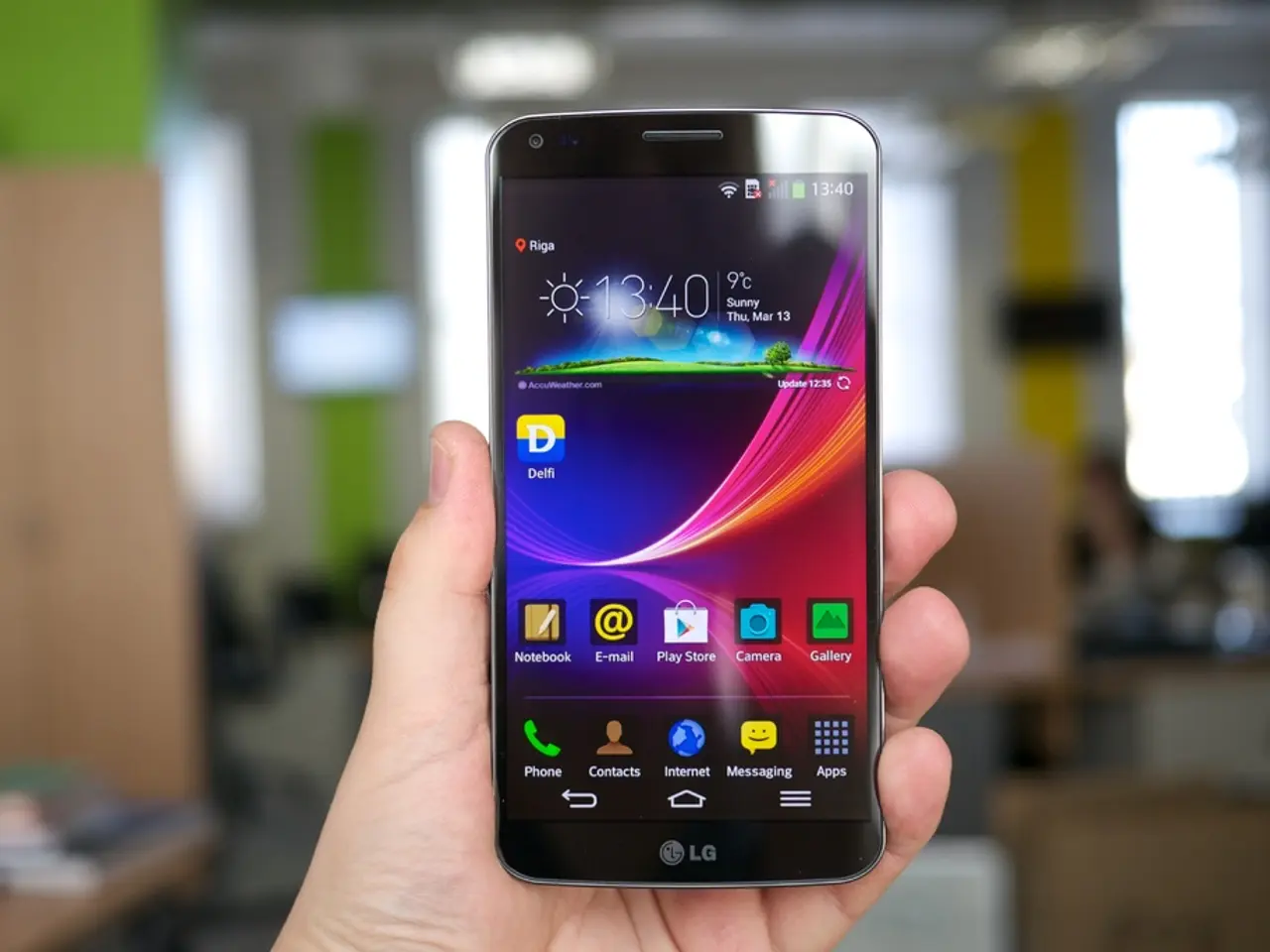In the Modern Era of Technology: Is the Use of Smartphones Dimpleing Our Capacity to Remember?
In today's digital age, smartphones have become an integral part of our daily lives, serving as a repository for information, a means of communication, and a tool for creativity. However, a growing body of research suggests that excessive reliance on these devices may have detrimental effects on memory retention and cognitive development, particularly in young people.
A study by Kaspersky Lab in 2015 revealed that 91.2% of Americans use the internet frequently, with a staggering 50% of Indians considering it as essential as their brain. This heavy digital engagement is increasingly affecting the way we remember information, with a shift towards relying on external sources rather than our own memory mechanisms.
Memory, a crucial aspect of our lives, helps us remember important things related to ourselves and others. Over-reliance on smartphones, however, can hamper cognitive development and the formation of skills, potentially weakening memory pathways.
Research by Sparrow et al. (2011) coined the term 'The Google Effect', suggesting that when people have the assurance of accessibility of information, they are less likely to take the initiative to recall information later. This phenomenon, known as cognitive offloading, can lead to difficulties in recalling information and the formation of long-term memories.
Excessive smartphone usage is linked to poorer organization of brain white matter in adolescents, leading to less efficient brain communication pathways. This disorganization is associated with worse cognitive function, including memory and attention retention. One of the key factors exacerbating these impacts is reduced sleep quality, often caused by excessive screen time. Poor sleep quality is linked to higher depression scores and impacts cognitive development.
Frequent smartphone use, especially multitasking between phone use and academic tasks, impairs cognitive abilities, attention, and learning efficiency. This contributes to lower academic achievement, decreased focus, and psychological challenges like anxiety. Excessive gadget usage also contributes to symptoms of short-term memory loss in teenagers, such as forgetting recent information, difficulty learning new content, and impaired day-to-day functioning.
Smartphone addiction can interfere with physical and mental health, social interaction, and academic outcomes. Altered brain functional connectivity patterns have been observed in adolescents with smartphone addiction, suggesting lasting effects on brain networks involved in cognitive control and memory.
In summary, while moderate and purposeful smartphone use can be beneficial, excessive and unregulated smartphone usage is linked to poorer memory retention, disrupted cognitive development, diminished academic performance, and mental health problems in youngsters. Key factors exacerbating these impacts include reduced sleep quality and addictive phone use patterns. Promoting healthy, balanced phone habits and ensuring adequate sleep are crucial to safeguarding cognitive development in youth.
[1] Yuan, J., et al. (2015). Smartphone use and white matter microstructure in adolescents: a diffusion tensor imaging study. NeuroImage, 108, 177-185. [2] Kross, E., et al. (2013). Social media are redefining identity, intimacy, conformity, and well-being. Psychological Science, 24(6), 617-628. [3] Greenfield, P. M. (2009). The digital revolution and children's brain development. Journal of the American Academy of Child and Adolescent Psychiatry, 48(11), 1077-1087. [4] Demirci, A. A., et al. (2015). The impact of smartphone addiction on mental health in adolescents: A systematic review. Journal of Adolescence, 53, 107-115. [5] Wong, S. H., et al. (2017). Smartphone addiction and its relationship with academic performance in adolescents. Journal of Behavioral Addictions, 6(1), 11-18.
- The study conducted by Sparrow et al. in 2011, referred to as 'The Google Effect', highlights how reliance on technology for information retrieval can impact mental-health, as it decreases individuals' initiative to remember information, leading to difficulties in recall and the formation of long-term memories.
- In health-and-wellness discussions, research has shown that excessive smartphone usage among adolescents is linked to a disruption in cognitive development, particularly in memory retention. This disruption, often caused by reduced sleep quality and addictive phone use patterns, can lead to psychological challenges, lowered academic achievement, and mental health problems.




